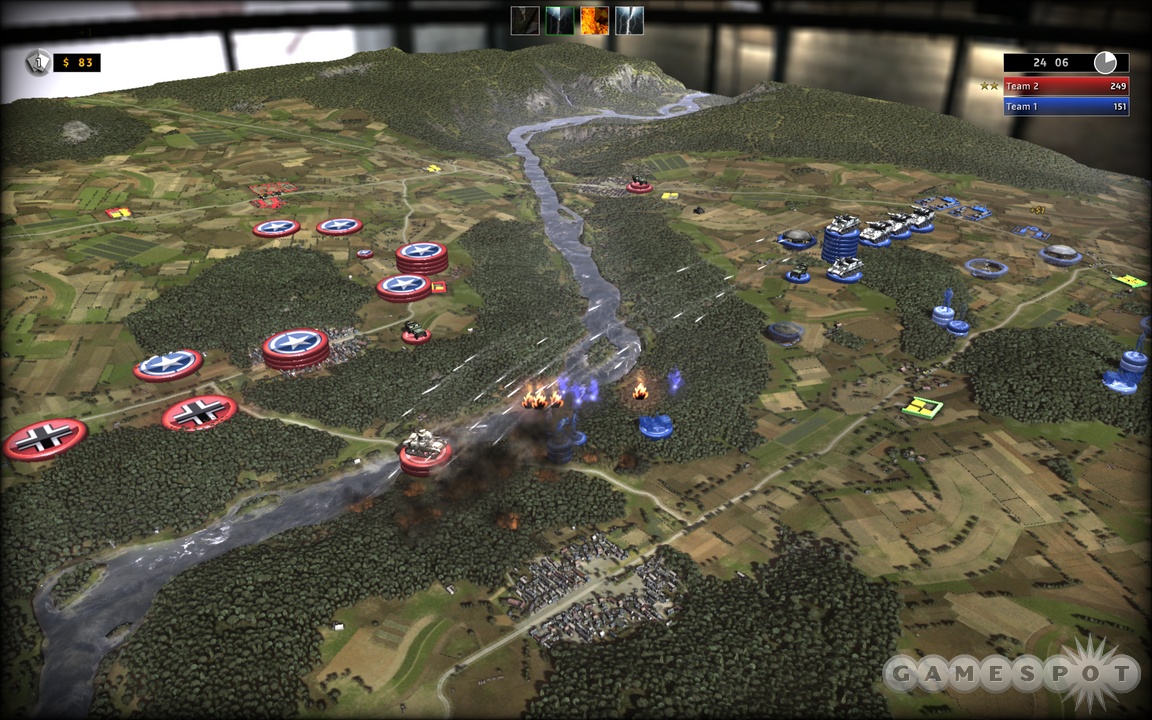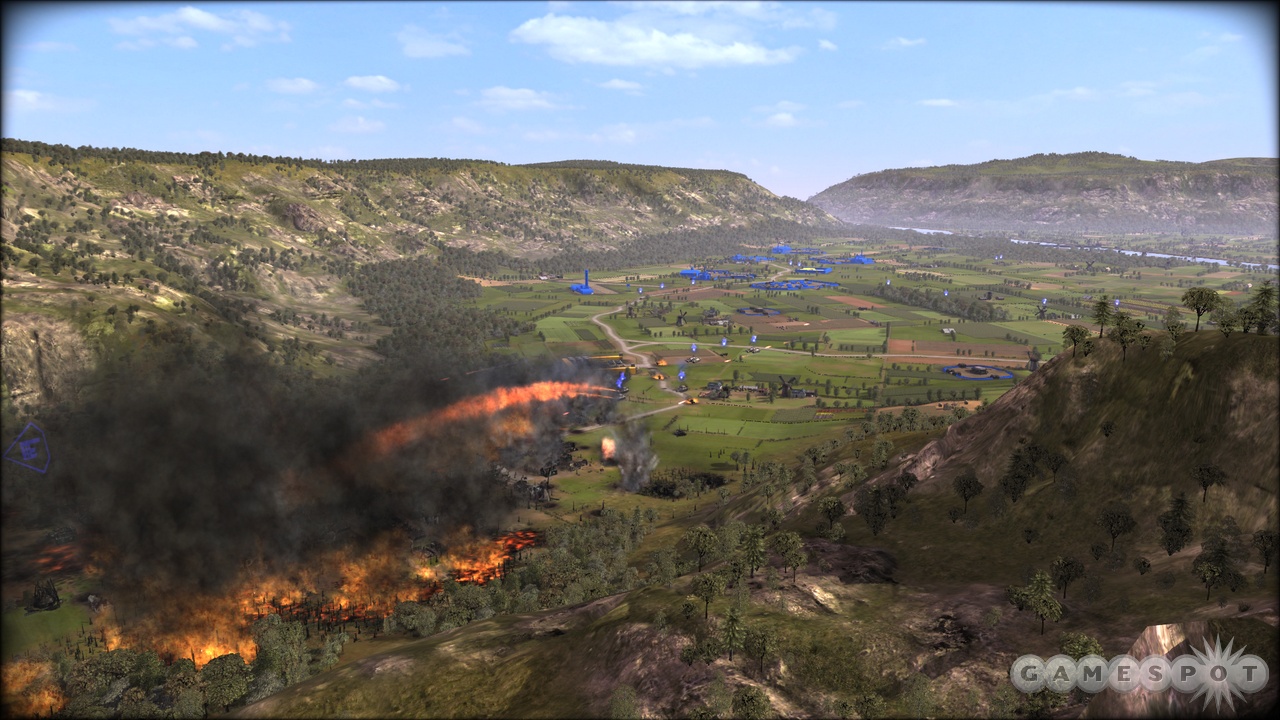We Just Played R.U.S.E.
We get our hands on this unusual PC and console strategy game and launch our brilliant military offensives under the cover of radio silence.
Ubisoft's unique real-time strategy game R.U.S.E. kind of looks like a traditional real-time strategy game, though it also kind of looks like a traditional wargame, and it kind of looks like the publisher's previous strategy game, Tom Clancy's EndWar. The unusual game lets you wage World War II-era warfare with infantry units, light scouting vehicles, various types of tanks (as well as antitank cannons), and different types of fighter and bomber planes. R.U.S.E. is powered by Eugen Systems' IrisZoom technology, which lets you quickly zoom in and out of the action, getting in so close that you can see individual muzzle flashes from the rifles of your light infantry, and zooming out so far that your view of the action turns into a tabletop wargame, with board-game figurines representing each of your units.

R.U.S.E. has a full single-player campaign, which we'll get to in a moment, though it also supports online multiplayer, an "operation mode" that offers one-off puzzle-like challenges and one-off skirmishes. While the campaign requires you to play through various missions that draw some inspiration from historical battles (but are primarily focused on a fictional story), most standard modes start you off with a standard base of operations around which you can build connected production structures, such as infantry barracks, armor bases to produce tanks, and airfields for fighters…along with miscellaneous support structures, such as administrative buildings that generate extra cash and stationary turret emplacements to counter enemy infantry, armor, and air.
R.U.S.E. has a completely streamlined resource model that doesn't require you to mine for gold or chop down trees. Instead, each player has a ticker that automatically pours dollars into your coffer each second, and there are additional supply points on the map that also support your production efforts. Getting a fistful of military production buildings can be done in a matter of seconds, and you can deploy units out in the world with a few more seconds, as long as you have enough cash to pay for them. R.U.S.E.'s combat mechanics are built around simple, easy-to-understand rock-paper-scissors relationships between different types of units: infantry are weak against armor, armor are weak against antitank guns, fighters and bombers are weak against antiair turrets, and so on. In addition, on the zoomed-out version of the map, you can generally see enemy units in play as red silhouettes and can even guess at their class (whether they're light units, armor, and so on). So victory in battle is a simple matter of locating your enemy's forces and then sending in the appropriate counterunit…or rather, it would be, if it weren't for the ruses.
Ruses act like global magic spells and can be used (and reused) on a timer that appears in the upper-left corner of the screen. R.U.S.E.'s battle maps are divided up into large sections called sectors, and each of the game's ruses can affect a single sector. The game has 10 different ruses, including placing decoy bases or decoy units (which will appear to be the real thing to your enemy at a distance), increasing movement speed for friendlies within a sector, revealing either the location of all enemy units or all enemy orders given within a sector, and cloaking for either your armies or your bases in a sector until the enemy gets extremely close. There are even ruses that affect unit morale, forcing your own troops to fight to the death or influencing enemy units to be more likely to be routed, causing the demoralized foes to move more slowly and become more difficult to manage--they can't be added to control groups and given group orders. With ruses, the simple game of rock-paper-scissors becomes a whole lot trickier as you try to guess not only which units your enemy will build, but also whether your rival's massing armies are actually cleverly disguised decoys while that one really quiet sector on the other side of the map might house a massive force that's even now making a push for your base.
R.U.S.E.'s unique gameplay seems like it's built for multiplayer play (the subtleties and bragging rights involved in smashing your foe's base under the cover of radio silence is lost against a computer opponent, after all), and fortunately, a significant part of the game is designed to ease players into going online and challenging other players. Operation mode challenges you to think out the solutions to preset tactical dilemmas, while the game's single-player campaign mode takes place over an increasingly difficult series of missions in which you play as American officer Joe Sheridan, who must discover the identity of a mysterious informant known as "Prometheus"--an informant whose dastardly and traitorous intel leaks have led to the deaths of thousands of Allied troops.

Over the course of the campaign, you play as Sheridan, both in his current rank of general in the European theater and in his earlier days as a tank major in North Africa chasing the Desert Fox himself, General Rommel. The campaign gradually eases you into using different types of units as well as different ruses, and once you've finished both single-player modes, you'll likely be more than ready to take on human competition. From what we've seen, R.U.S.E. is looking to reinvent real-time strategy and tactics with a clever, card-shark-like mechanic that will keep your enemies guessing. The game will launch in September.
Got a news tip or want to contact us directly? Email news@gamespot.com

Join the conversation